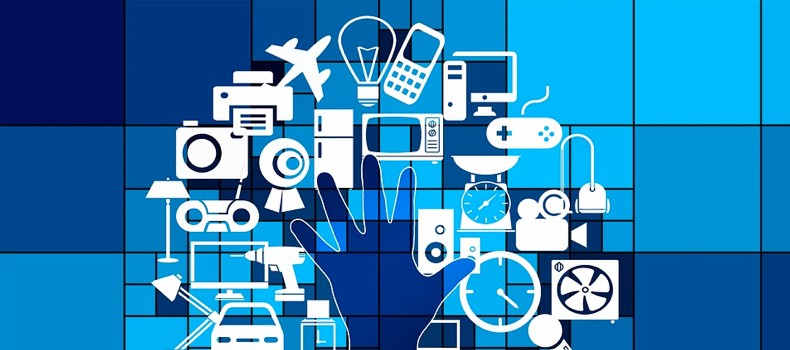 1-800-805-5783
1-800-805-5783 
“IoT devices connected to the Internet will more than triple by 2020, from 10 billion to 34 billion. IoT devices will account for 24 billion, while traditional computing devices (e.g. smartphones, tablets, smartwatches, etc.) will comprise 10 billion. ”–Business Insider
Our digital world is connected with internet and it has changed the way we live and work. As the technology of Internet of Things (IoT) progressed, it has made the devices smarter and changed the way consumers interact with the products or service providers.
We are experiencing prime digital engagements in our personal lives which has led enterprises to focus more on customer experience strategy. To furnish a consistent experience & engagement across multiple channels, the omnichannel experience has become the key to business strategy and success.
There are some companies who have already restrained omnichannel customer experience and embraced IoT technology to enhance connectivity of their devices with their customers. The concepts of IoT technology and omnichannel are focused on designs that help them to escalate relevant notifications and create personalized experiences that are accessible over all devices at their convenience. Also, this concept assists them to deliver smart marketing solutions that identify each customer as an individual, at the same time drive the company’s bottom line.
By 2018 there will be around 500 smart connected devices in the home via Internet of Things. Therefore, enterprises who are still in a dilemma, now it becomes essential for them to embrace these two concepts in their customer engagement strategies.–Gartner
Though the integration process may appear complex, it has added twofold advantage to the organizations. Sandy Carter, CEO, and founder of Silicon-Blitz says, “IoT’s impact will be felt in the marketing world. Omnichannel has been a hot topic owing to its focus on a single face to the customer. With IoT, presenting a single view of the data becomes easier whether you are a B2B or B2C company. The convergence of digital and physical worlds across multiple channels has created opportunities to measure and influence customer behavior beyond traditional purchasing cycles. Sensors, beacons, subscriptions, and digital capabilities have dramatically changed how businesses reach and manage customer relationships. This results in a transformation of marketing.”
Let’s see how the Internet of Things (IoT) is going to whack omnichannel service providers.
At present most of the companies follow the traditional way where they focus on problem and incident resolution. Internet of Things (IoT) offers smart services to the service provider by sending them a real-time notification in advance even before the issue arises. For example, all the hospitality industries are using smart devices that are connected to video and audio. This empowers them to take preventative action and at the same time, customers will have a favorable insight of the service/product that they are offering. By adding a high chunk of resolutions online and fixing the issues prior to the customer’s notice drives more traffic, deliver the extraordinary experience and boost the company’s growth.
Spending enormously in customer acquisition and retention has always been a challenge to all the organizations. Internet of Things (IoT) allow CMOs to have an absolute visibility of their customers, they can use their customer’s data for the complete lifecycle of the customer and work towards enhancing their offerings.
Omni-device has built a fantastic connection between the consumer and the service providers. It has become a channel for the marketers to promote, cross-sell or upsell their services or products in the market to engage more customers. Omnichannel has given seamless shopping experience and no doubt shoppers are loving it! The multichannel approach has empowered them to pick what they like and what they want. Now the challenge is how service providers are going to keep up with the shopper’s expectations and stand success.
For example, 4G LTE connected cars notify the drivers when their car needs maintenance and provide a sensor feedback to the manufacturers to know their customer’s preference.
Internet of Things connected devices has created huge opportunities in the sales division. An organization can keep a track of a product status through IoT technology and whenever the product expires or not in the usage condition, there the sellers have an opportunity to make an offer before the customer switches to another provider.
Also, imagine this, your smart refrigerator is synced with Amazon pantry app. Your smart fridge scans the content of your fridge and detects that you’re running out on the groceries for the next week. The fridge will automatically add all the items in your Amazon Pantry app and you will get a notification saying you have items in your cart please proceed for the payment. You quickly check the items and make the payment and you’re done. Your order will be delivered to you the very next morning.
Omnichannel and Internet of Things (IoT) has a huge potential to drop-ship best selling opportunities and customer experience for your organization. Celent, experts in financial services says, “IoT takes contextual commerce to an entirely new level, as connected devices start facilitating customer orders, orchestrating commerce transactions, and ultimately acting as independent economic agents.”
Internet of Things (IoT) technology is going to take this omnichannel approach to a next level by customizing and adding up the skills to promote service/product via this emerging channel. Consulting company McKinsey & Company estimates the economic impact of those IoT things will be between $3.9 and $11.1 billion annually by 2025, and Juniper Research has predicted 160 trillion mobile and online messages will be sent each year by 2019, and omnichannel messaging will drive a significant amount of these. Different communication channels will be brought together, with new approaches to manage this technology and more simplified methods of integration introduced.
Aimed at providing a personalized experience, digital disruption has changed the way consumers are interacting with the brands as well as enterprises utilizing customer’s data. This has made Internet of Things (IoT) as a massive game changer in an omnichannel equipped business.